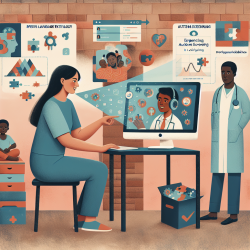The integration of education and health is a vital aspect of supporting the physical and mental well-being of children, especially those requiring long-term care. The Hospital School Program, as detailed in the research article "Hospital School Program: The Right to Education for Long-Term Care Children," is a powerful model that ensures the continuity of education for children undergoing prolonged hospital stays. This blog explores how practitioners can enhance their skills by implementing the outcomes of this research or by delving deeper into the subject.
The Role of Hospital Schools
Hospital schools play a crucial role in mitigating the adverse effects of hospitalization on children. By providing a structured educational environment, these programs help children maintain a sense of normalcy and continuity, which is essential for their psychological well-being. Key findings from the research highlight the importance of hospital schools in:
- Ensuring educational continuity and preventing school dropouts.
- Supporting the emotional and psychological needs of hospitalized children.
- Facilitating a smoother transition back to regular schooling post-hospitalization.
Enhancing Practitioner Skills
Practitioners can improve their skills by adopting the following strategies based on the research findings:
- Individualized Education Plans (IEPs): Tailoring education plans to meet the unique needs of each child, considering their medical condition and cognitive abilities.
- Interdisciplinary Collaboration: Working closely with medical staff, psychologists, and social workers to create a holistic support system for the child.
- Use of Technology: Leveraging digital tools and platforms to facilitate learning, especially during times when in-person instruction is not possible.
- Parental Involvement: Engaging parents in the educational process to ensure they are informed and can support their child's learning at home.
Encouraging Further Research
The research underscores the need for ongoing studies to explore new methodologies and technologies that can further enhance the efficacy of hospital school programs. Practitioners are encouraged to participate in or conduct research to contribute to the growing body of knowledge in this field.
Conclusion
The Hospital School Program exemplifies the integration of education and health, providing children in long-term care with the right to education and a sense of normalcy. By implementing the strategies highlighted in the research, practitioners can significantly improve the outcomes for these children, ensuring they receive the support they need to thrive academically and emotionally.
To read the original research paper, please follow this link: Hospital School Program: The Right to Education for Long-Term Care Children.










